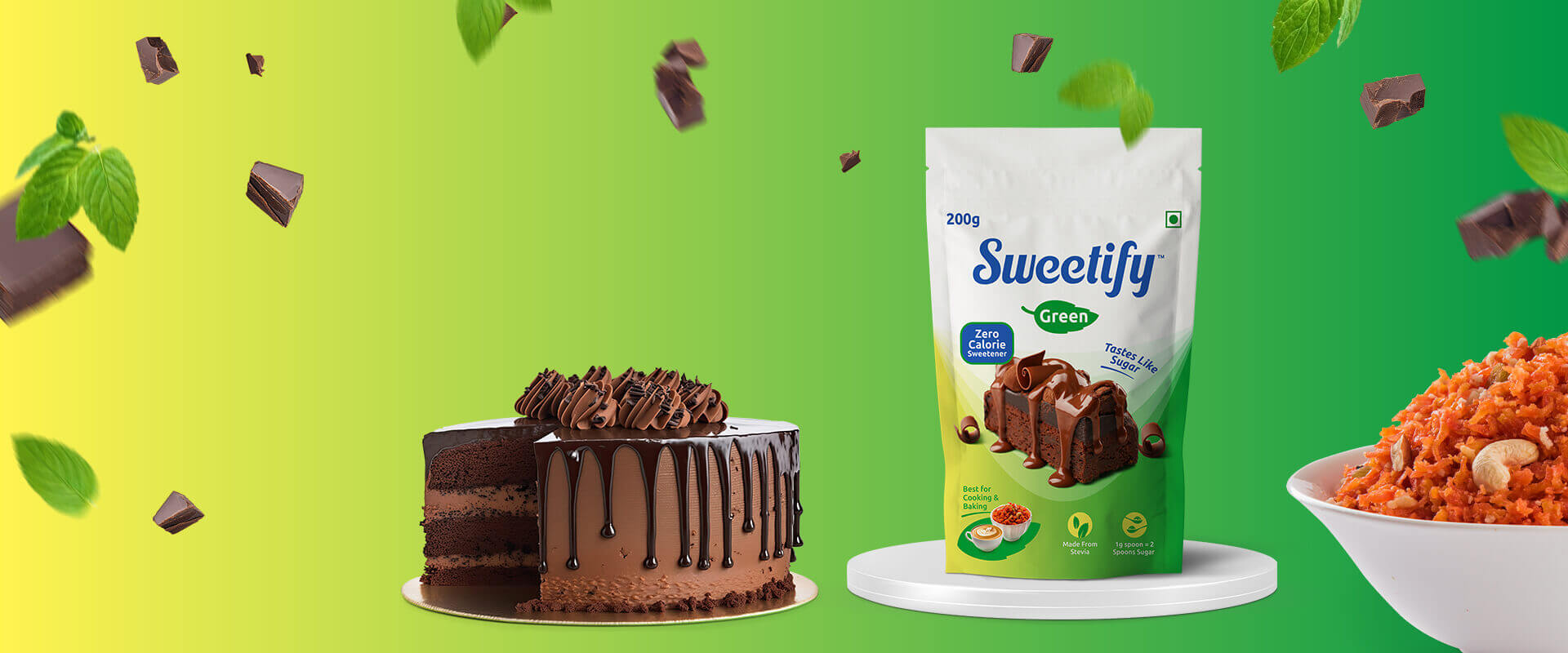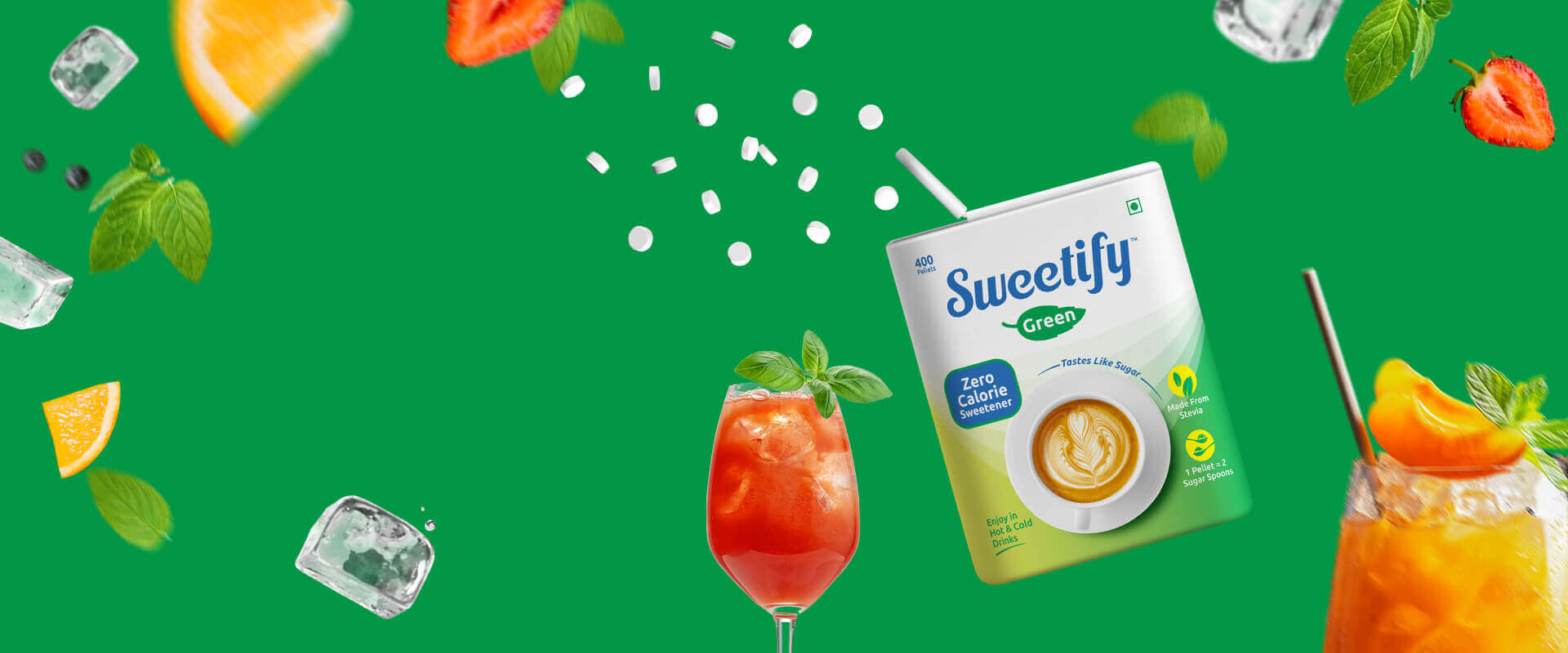Till now, we have gone through quite a few harms of sugar. In fact, in one of the previous articles (hyperlink Pillar 2 article in ‘previous articles’), we talk about all the bad sugar can do and does.
In this one, we’ll specifically talk about the oral & dental harms sugar causes. These harms are not minute as they can affect your smile, both figuratively and literally. And we don’t want that to happen. We want your smile to be radiant. So let’s see what sugar does to your teeth.
How does sugar affect your teeth?
See, sugar does not directly harm your teeth. When it is stuck in between your teeth, then broken down there, the acid produced corrodes and harms your teeth. Your enamel is eroded, your teeth are eaten up and your dental health is left hanging. This means the more sugar in your mouth, the more the acid produced, and the more the damage done.
The wearing down of your enamel can make your teeth more sensitive, especially to temperature. So when you consume hot or cold food/ beverages, you’ll feel it in your teeth. Literally.
Your teeth also might become sensitive to pressure while biting.
This is only the start. If not taken care of, cavities start forming which initially require filling but in the latter stages, can outright require a fake tooth to be screwed in. All these dental processes can be extremely expensive.
If the bacteria in your teeth continue to thrive like this, building more colonies and expanding their domain, reach & civilization, they can reach your gums leading to gum disease. Once your gums start receding, your teeth will not be held in place. Think of your gums as the soil holding the tree in place. If there is no soil, there can be no trees.
Cavities, gingivitis, and many more dental problems can be avoided with a few simple steps. Even if you do have these issues, your teeth can still be maintained by following the below simple steps. In case of more severe damage, professional dental care & treatment would be required which can be draining mentally, emotionally & financially.
So the first step is to reduce sugar intake, especially added sugar intake from ultra-processed food. Your body doesn’t need so much sugar, particularly added sugar.
The second is to swish your mouth with water after you’ve had sugary food. You do not want sugar to remain on your teeth, in your mouth.
The last step is to brush your teeth two times a day for 2 minutes with fluoride toothpaste and floss. The bits stuck in between must be removed.
This is the bare minimum that has to be followed regularly.
Some of the most sugar-drenched foods are:
- Soft drinks
- Biscuits
- Jams & sauces
- And a lot (hyperlink: Pillar 2 - Cluster 3 - Hidden sugars in popular everyday foods) of other packaged snacks & beverages
Keep a lookout for sugar or its different names & forms on the labels. Companies these days are adding sugar yet writing anything but sugar behind. So check the labels carefully.
Also, please don’t smoke or drink. These harm almost all parts of the body. Eat nutrient-dense whole foods. Our bodies are more accustomed to their richness and they get digested better compared to the ultra-processed sugary foods we consume daily. Whole foods also keep us satiated for longer while these sugary foods don’t.
Conclusion
It’s not that sugar is all bad and causes harm to your teeth. Excess sugar, especially added sugar from ultra-processed foods when broken down by bacteria in the mouth causes the harm. Good mouth hygiene usually keeps these harms at bay. But even that can only do so much if you abuse your sugar privileges. Balance is key here. Have your sweet treats, but don’t overdose on them. Burning the sugar you consume in physical activities goes a long way. The benefits of working out, as hard as it is, are manyfold. It helps you burn those sugar calories, releases good hormones in your body and keeps you healthy for longer. Add to this brushing your teeth twice a day with fluoride toothpaste and generally good practices of oral hygiene like flossing, you are good to go : )
FAQs
-
How does sugar specifically lead to tooth decay?
Sugar is broken down by the bacteria in the mouth into acid which corrodes your teeth and leads to decay & cavities. - How can I reduce my sugar intake without feeling deprived?
By choosing foods that are nutrient-rich and fulfilling instead of ultra-processed foods which have tons of added sugar in them. You can also switch to sugar-free snacks and use sweeteners like stevia. - What are some ways to prevent cavities and gum disease, especially for individuals who have a sweet tooth?
First is replacing sugar with sweeteners like stevia as sugar gets broken down into acid in the mouth while stevia sweeteners don’t. The second is to choose whole foods, fruits & vegetables that satisfy hunger for longer periods over ultra-processed empty sugar calorie food. -
How does sugar consumption contribute to the development of gum disease?
Sugar gets broken down by the bacteria in the mouth and eats away at your enamel, teeth and gums. -
Can sugar substitutes, like xylitol or stevia, contribute to dental health in the same way as regular sugar?
They are better than sugar for dental health as they don’t get broken down by the bacteria in your mouth into acid and don’t erode your teeth like sugar does.





